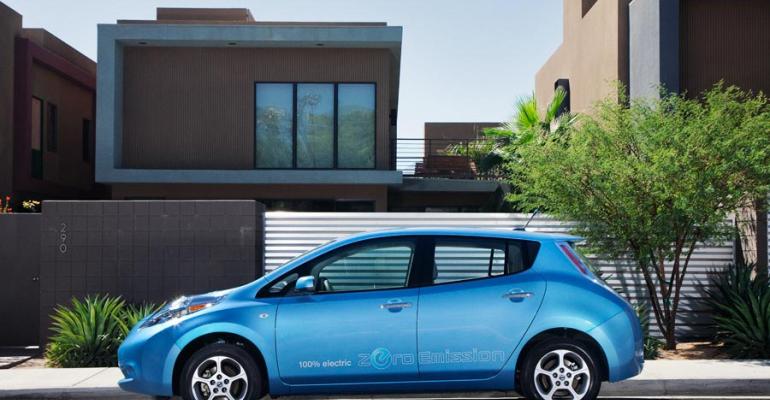NEW YORK – Despite their low sales and the recent high-profile failures of upstart manufacturers, Nissan CEO Carlos Ghosn insists electric vehicles are here to stay.
“I still back my forecast,” he says at the kickoff of the auto show here today.
Ghosn earlier had said EVs would account for 10% of vehicle sales in 2020, but he explains the forecast pertains only to the markets where EVs are available.
“I don’t want you to take a 1-month or 2-month sales result in one particular market to determine the EVs’ success,” he says.
Nissan has delivered more than 27,000 Leaf EVs worldwide since the hatchback launched in late 2010. Sales in the U.S. have exceeded 11,000 units, which Ghosn says makes the Leaf the most successful EV in the country.
General Motors’ Chevrolet Volt has delivered fewer units cumulatively since going on sale in late 2010. Despite toppling the Leaf in March by a sizable margin, with 2,289 vs. the Leaf’s 579, the Nissan EV’s March deliveries soared 283% compared with year-ago.
Last month, the Leaf became available in all U.S. states.
With gas at $4 per gallon in the U.S., Ghosn says economics as well as environmental altruism will motivate car buyers to purchase EVs “little by little.” He defends the Leaf’s weak showing in the U.S., saying its sole production site in Japan is “not great” due to last year’s earthquake and tsunami. He also blames the high yen.
The production restraint will go away when U.S. Leaf production begins in Smyrna, TN, later this year. Nissan also will build the Leaf at its Sunderland, U.K., plant.
To make EVs more palatable to buyers, the auto maker continues to work on reducing the cost, size and weight of lithium-ion batteries. And it must “do this fast,” Ghosn says.
Later, in a scrum with media, the CEO doesn’t discount the possibility of battery-swapping in the U.S. Nissan plans to participate in such a program in Europe through EV infrastructure provider Better Place. But up to now, the U.S. has been seen as too vast geographically for battery-swapping to work.
“The way we charge the battery should not be a handicap for the electric car,” Ghosn says. “Yes, there are possibilities for swapping batteries in the United States, but we’re not going to push it. If one particular state wants to do that, we’ll support it.”





